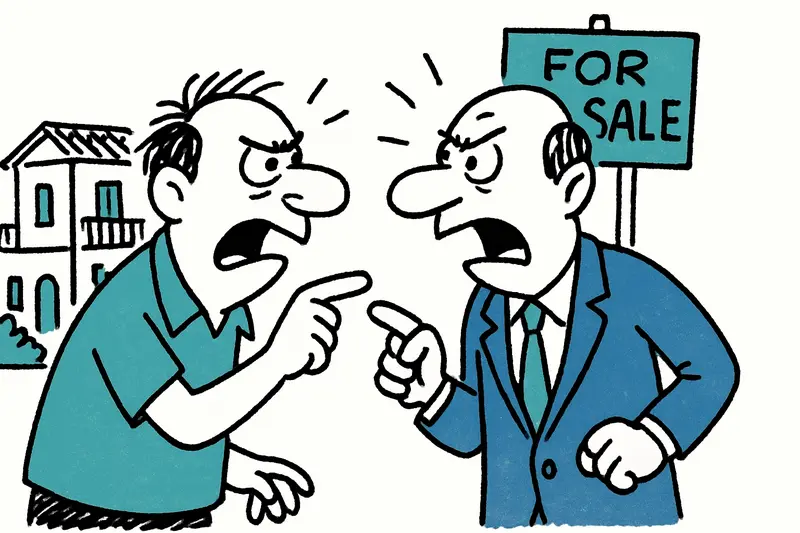The clash over vacancies and luxury sales heats up again: residents demand protection, agents warn against easy solutions.
Between outrage and law: A dispute echoing through Palma's streets
On a sweltering Tuesday afternoon at Plaça Major, the same arguments were heard again: neighbors crying out for solutions, and real estate agents insisting on rights and property. The conflict over housing on Mallorca is not new, but it is flaring up again — this time with loud debates in neighborhoods like El Terreno and Santa Catalina.
What exactly is it about?
A group called SOS Residents criticizes that sales to foreign buyers push locals out of their neighborhoods. "If every villa here goes to someone who only comes for two months a year, families are left behind," said a resident at a meeting on Church Street. On the other side stand real estate associations who emphasize: ownership, price formation, and legal frameworks are more complex than what banners suggest.
Industry representatives reject blanket blame and call for a factual dialogue. They argue that a sales ban would be legally hard to defend and would not automatically be the solution for a tight housing supply. Moreover, according to agencies in Palma, part of the demand arises from people who want to live here permanently but are registered as non-residents.
What lies behind the price increases?
The debate is not only about the origin of buyers. Construction halts in peripheral areas, rising material costs, less affordable housing, and a tax regime that affects investments are real drivers. In conversations with landlords and social workers I often hear: there is a lack of affordable new housing projects and consistent social housing funding.
Politics, reactions and what could happen next
Agents call for a regional pact, i.e., talks with municipalities and citizen initiatives to find practical solutions—not just prohibitions. Some city councilors, in turn, talk about examining purchase restrictions and controls for certain zones. Critics call this half-hearted: too slow, too bureaucratic.
At the end of the day people sit in cafes, listen to the arguments, and ask: What good is the best legal framework if a neighbor moves away in two years because rents explode? On the island, solutions require time, concrete numbers, and often compromises—and yes, a dash of common sense.
My impression after conversations in Palma: The mood is heated, but not hopeless. If politicians, associations, and neighborhood groups would really come to the table—and that without preconditions—it would be a start. Until then, the debate remains loud, local, and sometimes very personal.
Similar News
From the squatter eyesore to a luxury project: Penthouses in Palma for €1.55 million.
A long-abandoned house at the corner of Comte de Barcelona and Rodríguez Arias is being transformed into a luxury reside...

Palma plans over 3,500 new apartments – what that means for districts like Son Güells.
The city administration has approved the construction of more than 3,500 homes in the new development areas Son Güells a...

Palma launches construction drive: Thousands of new apartments planned
The city administration has registered several major projects — new laws allow denser construction. Residents are concer...

Rental prices in Mallorca rise sharply after minimum contract term.
After the mandated minimum contract duration expires, landlords often demand significantly higher rents. Single parents ...

Palma Allows Conversion: Offices and Shops Turned into Housing
The city of Palma has decided to allow many vacant offices and ground-floor shops to be converted into housing. A move t...
